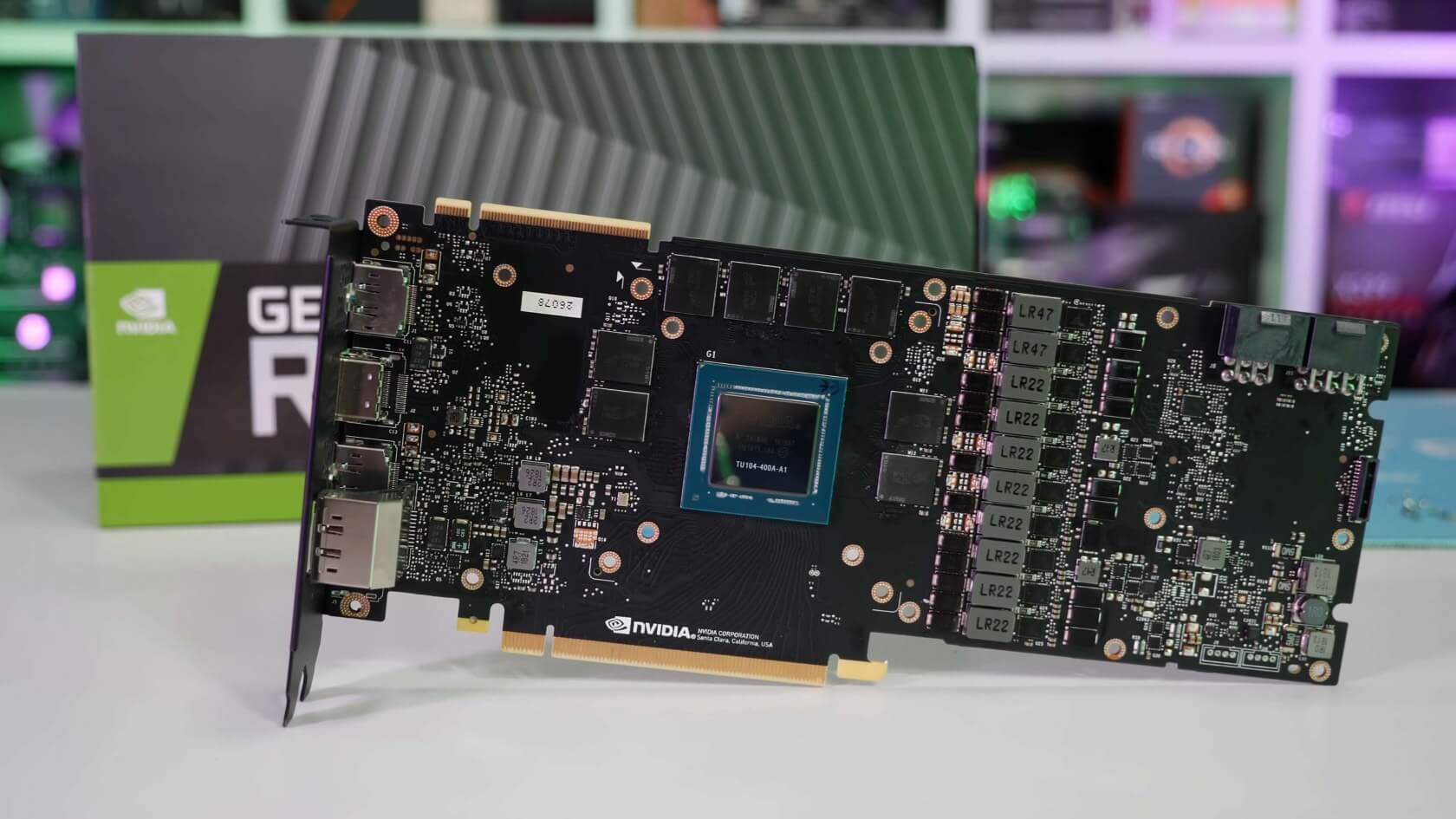In brief: Nvidia has been dividing its Turing silicon into A and non-A dies for RTX 2080 Ti, 2080, and 2070 graphics cards. This allowed Nvidia to bin the higher quality Turing A-dies for board partners' flagship, factory overclocked cards. It also allowed use of the non-A die silicon for non-overclocked, lower price point cards. Now Nvidia will only produce the TU104-410 and TU106-410 dies, ceasing production on the lower quality non-A dies. This implies the manufacturing process has been optimized and we can expect higher quality Turing silicon in the future.
Igor Wallossek with Tom's Hardware Germany has divulged that Nvidia will stop binning the Turing A-dies and also cease production on non-A dies that are used on RTX 2080 and 2070 cards. What this means is that going forward, Nvidia will offer only one variant of the Turing silicon for the cards.
Theoretically, this is good news for gamers, as the non-A die silicon was the cheaper, less capable variant that limited overclocking headroom. This should mean that the TSMC 12nm "FFN" process is mature enough to maximize yields, meaning Nvidia no longer needs to segregate the Turing silicon. The "new" silicon, reportedly already in production, will be the TU104-410 (RTX 2080) and TU106-410 (RTX 2070). Nvidia will reportedly sell the new dies at the same price point as the previous non-A counterparts.
The separate Turing dies were spotted by TechPowerUp some time ago as it was discovered that there were two different device IDs per Turing graphics card. For example, the RTX 2080 uses both the TU104-400-A1 and TU104-400A-A1 variants. By so doing, this allowed Nvidia to deliver higher quality chips to board partners for flagship models, and the cheaper non-A die chips for lower price points. There's no word on whether Nvidia plans to do the same with the RTX 2080 Ti and the TU102 die.
